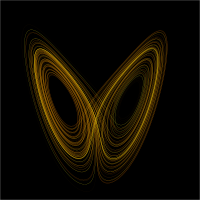There is yet one leverage point that is even higher than changing a paradigm. That is to keep oneself unattached in the arena of paradigms, to stay flexible, to realize that no paradigm is "true," that every one, including the one that sweetly shapes your own worldview, is a tremendously limited understanding of an immense and amazing universe that is far beyond human comprehension. It is to "get" at a gut level the paradigm that there are paradigms, and to see that that itself is a paradigm, and to regard that whole realization as devastatingly funny. It is to let go into not-knowing, into what Buddhists call enlightenment.
People who cling to paradigms (which means just about all of us) take one look at the spacious possibility that everything they think is guaranteed to be nonsense and pedal rapidly in the opposite direction. [...] But, in fact, everyone who has managed to entertain that idea, for a moment or for a lifetime, has found it to be the basis for radical empowerment. [...] It is in this space of mastery over paradigms that people throw off addictions, live in constant joy, bring down empires, get locked up or burned at the stake or crucified or shot, and have impacts that last for millennia.
...
The higher the leverage point, the more the system will resist changing it—that's why societies often rub out truly enlightened beings. [...] In the end, it seems that mastery [of creating systemic change] has less to do with pushing leverage points than it does with strategically, profoundly, madly, letting go and dancing with the system.

I love this...
ReplyDeleteI've been thinking a lot about this from the perspective of Spiral Dynamics / Integral Theory, which propose certain ways that consciousness develops through the course of human history to become more expansive. It's an unapologetically progressivist view, but one which insists on the model of "transcend and include," rather than to deny or repress that which has come prior (simply because its excesses have become oppresive).
In other words, dancing with the system is kind of like a type of digestion, connection with the system's existing framework, its pulses, its energy, and synthesising it into something greater than it could itself have envisaged, without fundamentally destroying anything in the wake...
I reckon you'd really like Ken Wilber's writing on Integral Theory...
A great place to start would be his book "The Marriage of Sense and Soul: Integrating Science and Religion," where he actually has an entire chapter dedicated to dissecting the implications of Kuhn's conceptions of paradigms and paradigm shifts... An absolutely brilliant thinker + writer.